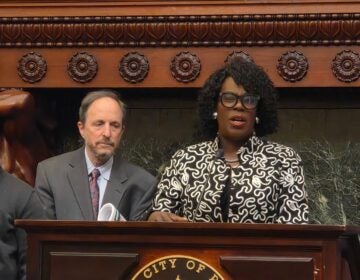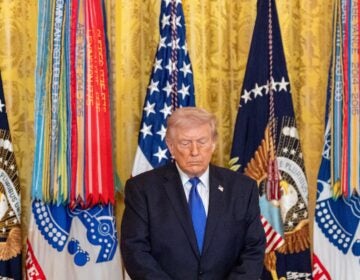Obama’s immigration executive order is terrible policy and bad for American workers
I heard the President’s November 20 announcement of his executive immigration order for amnesty for 5 million illegal immigrants. I thought it was a good speech, well-delivered, but wrong on the facts, wrong on policy, and bad news for American workers. For example, he repeated his often expressed statement that “everyone” agrees that our immigration system is broken. I know for a fact that statement is untrue because I don’t know or believe that our immigration system is broken.
We have the most generous legal immigration system in the world, admitting each year more legal permanent resident immigrants, with a clear path to full citizenship, than all the rest of the nations of the world combined. As I testified to the Senate Judiciary Committee last year, we have an immigration system that’s worthy of our nation of immigrants.
What’s broken is the willingness of some Americans, especially politicians, given our immigrant history, to choose between admitting all who want to come to America in search of a better life (no limits) or, alternatively, enforcing a numerical limit on how many immigrants we’re willing to accept each year, which would require us to turn away people, not because they’re bad people, but because admitting them would violate our limit. And if they come anyway in violation of our limit, we would have to try to deport them to enforce the limit.
That’s a binary choice. No limit or an enforced limit. And it’s a hard choice for many Americans, especially politicians. They can’t choose no limit, because that would be unpopular. But they don’t want to turn away or deport any hard working people who remind us of our own immigrant ancestors either.
So give us a third choice, they ask. And that’s what President Obama and his supporters are serving up as “immigration reform”. How about this: we keep the numerical limit on immigration on the books, but we don’t enforce it. And whenever we end up with a large number of illegal immigrants, we just give them all amnesty. Think that will work? Is that a good third choice? I call that a formula for permanent dysfunction.
How can you tell that a politician has no real policy to address the growing problem of illegal immigration? Answer: When all they talk about is deporting criminals and border security. Duh. Who’s not for that? That’s like being for motherhood and apple pie. Border security will never work by itself without policies that deter attempts to enter, such as interior enforcement. And about half of illegal immigrants enter legally and simply overstay their temporary visas or entry authorizations.
Now why is President Obama’s unilateral executive immigration order illegal and unconstitutional? The basic reason is that it violates the basic concept of the U.S. Constitution, that we the people govern ourselves through our elected representatives through a deliberative process of checks and balances, not through the unilateral pronouncements of one “great leader” as in North Korea.
The Obama administration and its allies claim that the exercise of prosecutorial discretion and the granting of work authorization to five million up to now illegal immigrants has legal precedent promulgated by other U.S. presidents. But the devil’s in the details, and I contend that all the earlier precedents are distinguishable from that of President Obama.
Though administration allies say that numbers of beneficiaries don’t matter, I think the difference between prosecutorial discretion granted on a case-by-case basis to single beneficiaries based on the particular and unusual facts of their individual cases is clearly distinguishable from the completely unprecedented exercise of unilateral prosecutorial discretion to five million beneficiaries in one fell swoop.
But other presidents have exercised prosecutorial discretion in favor of groups of illegal aliens and awarded them employment authorization. Most of those cases, however, involve the exercise of presidential authority over foreign policy, an area where the president’s power has been recognized to be substantial.
The most cited precedent for the Obama executive immigration order is President George H.W. Bush’s 1990 decision to exercise prosecutorial discretion in favor of a large number of spouses and minor children of beneficiaries of the 1986 immigration amnesty enacted by Congress. So that’s one basis for distinguishing it from President Obama’s executive order. President Bush was working out the implementation of an amnesty statute enacted by Congress.
But having worked myself in the first Bush administration, I recall that the administration was in the midst of negotiations with Congress over what became the Immigration Act of 1990. That the prior executive order was done with the consent of Congress is strongly suggested by the fact that the Act provides a statutory solution to the problem of spouses and minor children of amnesty beneficiaries by providing them with visas provided by statutory law.
In the 1952 Supreme Court decision in Youngstown Sheet and Tube, a case familiar to most American lawyers and law students, the court limited President Truman’s authority to seize a steel factory during the Korean War without authority from the constitution or Congress to try to avert a work stoppage. Justice Jackson said in his opinion that the President’s authority is at its greatest when he acts with the express or implied consent of Congress, but is at its lowest ebb when he acts in defiance of Congressional enactments, which was the case in President Truman’s attempted seizure, and I believe is also the case for President Obama’s executive order.
Finally, I want to suggest some questions that any of us should be asking of the Obama administration and its supporters.
First what is the impact of an executive order adding 5 million or so additional workers to the labor work force in America? How does that affect the job prospects of 9 million unemployed Americans, 2.9 million of whom are considered long-term unemployed, and another 7 million officially recognized as involuntary part-time workers because they want but can’t find full-time work, and another 2.2 million who want and are available for work and have looked for work in the past year, including 800,000 designated as discouraged workers who have given up?
How does the expanded legal work force affect the future prospects for 46 million Americans, almost one in six, who are surviving on food stamps? Although the official unemployment rate is now 5.8%, still high but coming down, it’s 10.9% for African-Americans, 18.6% for American teenagers, and 32.6% for African-American teenagers. Are we okay with that? How does giving 5 million more immigrants work authorization and adding them to the legal work force affect those groups?
The American economy is growing by adding mainly part-time jobs without benefits. Wages remain stagnant, and even employed Americans feel job insecurity. President Obama says rising income inequality is tearing at the social fabric of America. Indeed, corporate profits are up and the stock market is hitting new record highs seemingly every week, which is great for those with fortunes invested there, even while wages stagnate. Coincidence? Do you think adding 5 million more immigrant workers to the legal work force will increase or decrease economic inequality?
Second, what is the impact of giving work authorization to 5 million illegal immigrant workers on the additional millions of people in other countries considering illegal immigration to the U.S.? A former colleague of mine at Temple University used to say in class that the poor people of the world may be poor but they are not stupid. They are as capable “as anyone in this room”, he used to say, of using cost-benefit analysis to determine what is in their own self-interest, and they do it all the time.
So if we want to deter them from illegally immigrating to the U.S., we should raise the costs of doing so through more enforcement, and reduce the benefits. Conversely, if we want to encourage more illegal immigration, we should lower the costs through less enforcement, and increase the benefits by providing work authorization, as President Obama does in his executive order. Do we want more illegal immigration?
Third, we should ask what is the impact of the Obama executive order on qualified legal immigrants to the U.S., both those recently arrived, with whom those newly work-authorized will compete for jobs, and the hundreds of thousands of qualified immigrants still waiting outside the U.S. for their chance to immigrate legally, because of the limited number of immigrant visas available each year. Some of those legal immigrants have been waiting outside the U.S. for an immigrant visa for more than 20 years. How do they feel about seeing those who entered illegally as recently as 5 years ago rewarded with work authorization and prosecutorial discretion? Does the executive order make them feel like fools for trying to respect American law instead of violating it?
Finally, as the 2016 presidential election cycle gets underway, I hope everyone will be asking every presidential candidate to clarify their position on the Obama executive order. If the Democrats nominate a candidate who supports and pledges to extend and expand the executive order, and if the Republicans nominate someone who pledges to revoke the executive order on the first day of his or her administration, the American people may have the unprecedented opportunity to vote directly on what our immigration policy ought to be.
WHYY is your source for fact-based, in-depth journalism and information. As a nonprofit organization, we rely on financial support from readers like you. Please give today.




